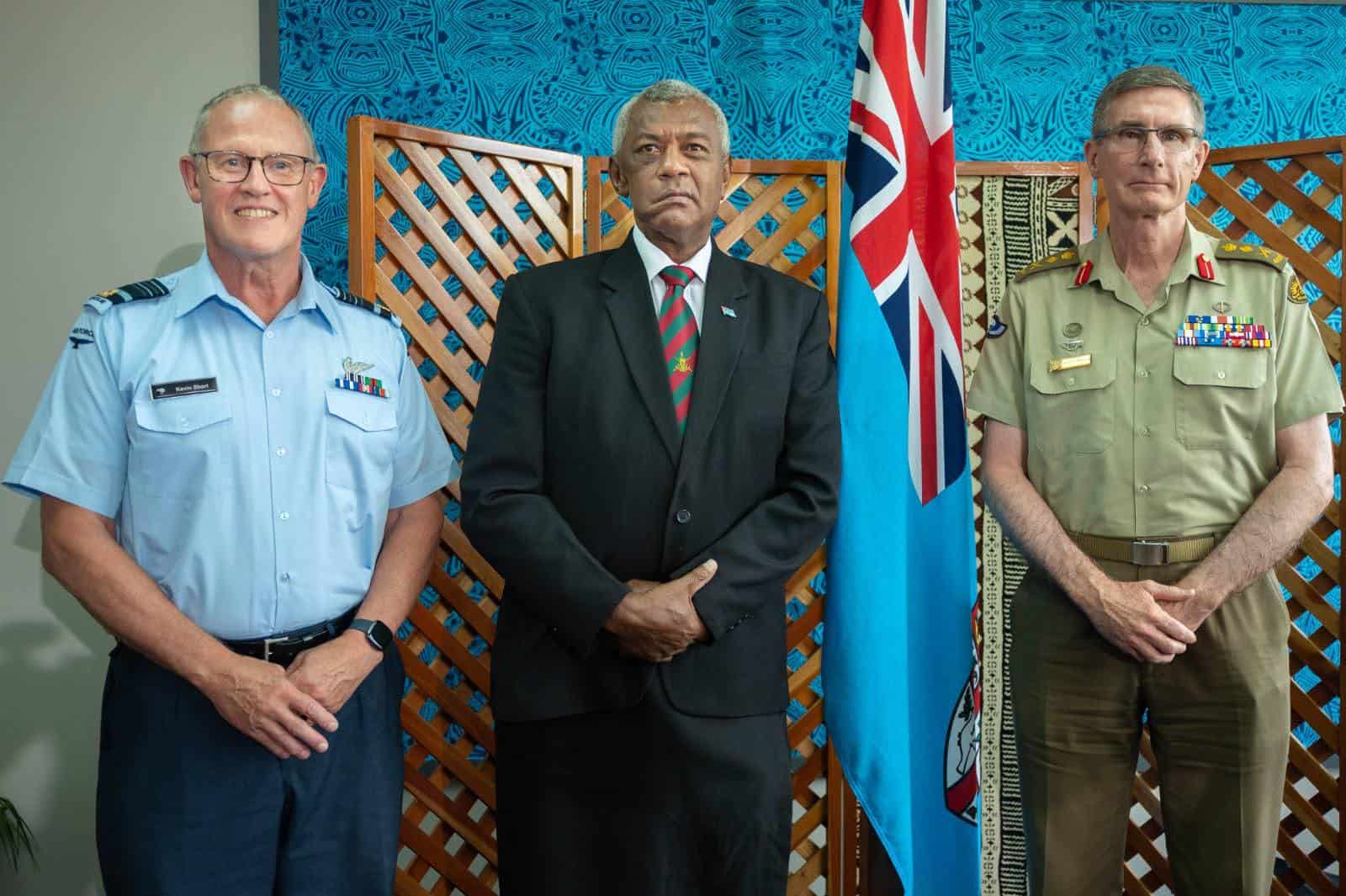Prime Minister Sitiveni Rabuka says the visit of Australia and New Zealand’s Chiefs of Defence to Fiji last week shows the importance those nations place on stability in Fiji.
The Chiefs of Defence of Australia and New Zealand, General Angus Campbell and Air Marshall Kevin Short, visited Fiji for meetings with their counterpart, Republic of Fiji Military Forces Commander, Brigadier General Jone Kalouniwai and Home Affairs Minister, Pio Tikotikodua.
“It is important for Fiji, particularly at a time when we are just settling in after the general elections, where the focus had been on the Commander, the various view of political parties and observers about the military role, and the Constitution,” Prime Minister Rabuka said of the visit during an interview with Islands Business today.
“And for him to have the visit, that for the Commander himself is a great reassurance of the importance Australia and NZ give to Fiji and stability in Fiji.”
When the three military bosses spoke to Islands Business at an Australia Day celebration after their meetings last Friday night, they were wearing matching taonga, pendants of greenstone and wood.
This was not by chance, said New Zealand’s Air Marshall Short, but a symbol of shared understanding and friendship: “I think it’s a really powerful friendship that allows us to work together.”
General Angus Campbell said that Friday had been spent, “discussing the work that we’re doing, how it is going, the work that we could do, and the ways in which we are each, Australia and New Zealand, complementing the other so we get the maximum value, and also how the RFMF, contributing as partners, to our own challenges and national interests.”
Brigadier General Kalouniwai added: “We shared a lot in terms of our strategic plans, in terms of what we feel is important to us. Both the kind Generals have actually asked, ‘What do we need in terms of the RFMF’, there is ways that we can actually move forward in this particular areas. So it’s us consulting, getting together in dialogue, and understanding the needs, the requirements, and how we can actually work together.”
Security cooperation in the Pacific is often framed by the influence of Chinese security interests in the region, but Campbell stresses the talks were “a conversation about here and about us and about what we can do together. And I’m very comfortable with that. I think that that’s where the conversation should focus because that’s how you move forward.”
New Zealand’s Air Marshall Short added, “It’s about common values, common understanding and the work we do together makes it really easy, but it’s actually the values that we share that really make us really work closer together. And it’s not about saying, is it China, is it Australia, is it New Zealand, it’s saying, we value what Fiji does, we value their lifestyle and their way of operating, and we can relate to that, and we’ll keep operating with that. Now if you look elsewhere, other countries can step in obviously, but as long as they respect the values that Fiji has and what they want. And that’s why I think we do very well—between Australia and New Zealand—is understand the values that you have here in Fiji and work with that.”
Brigadier General Kalouniwai said the relationship Fiji has with Australia and New Zealand is ‘very unique’. “It’s something I don’t think you’d see many places amongst CDFs, Chiefs of Defence, gathering together, visiting of friends, understanding the way we need to work together, it’s for the betterment of the organisation, it’s for the betterment of the people, and I think that’s very important.”
